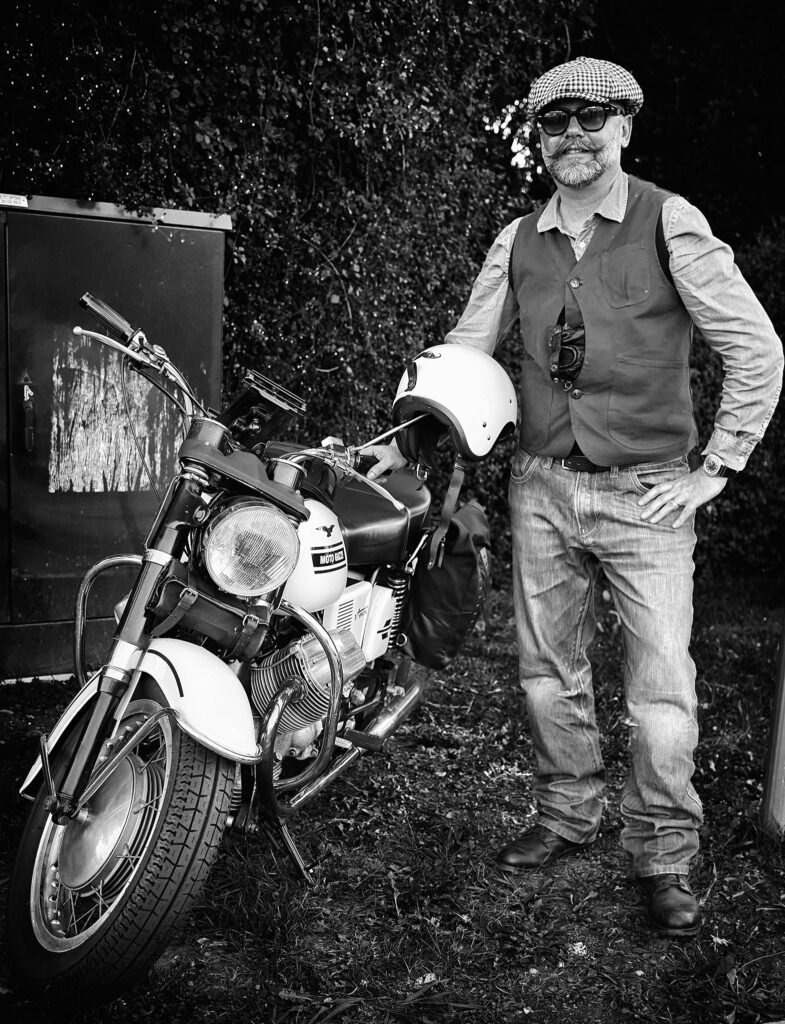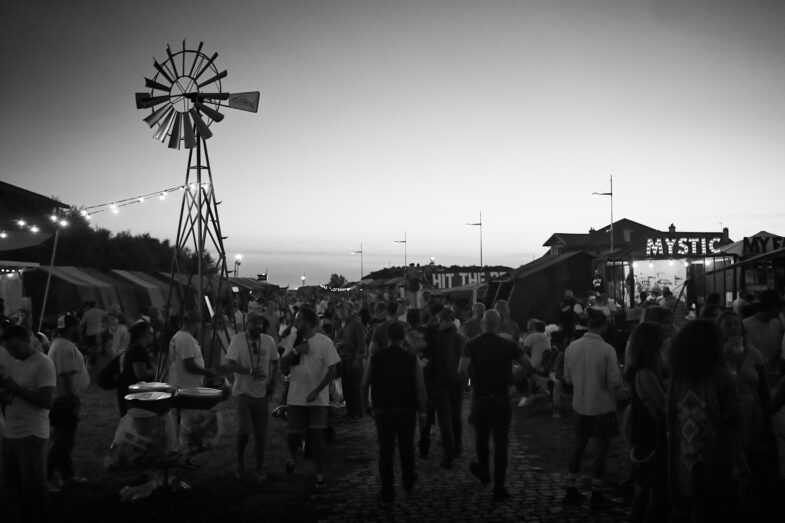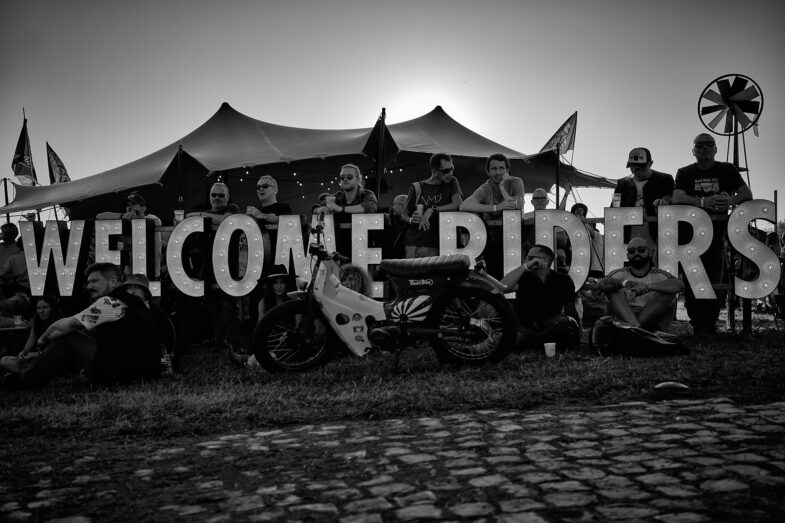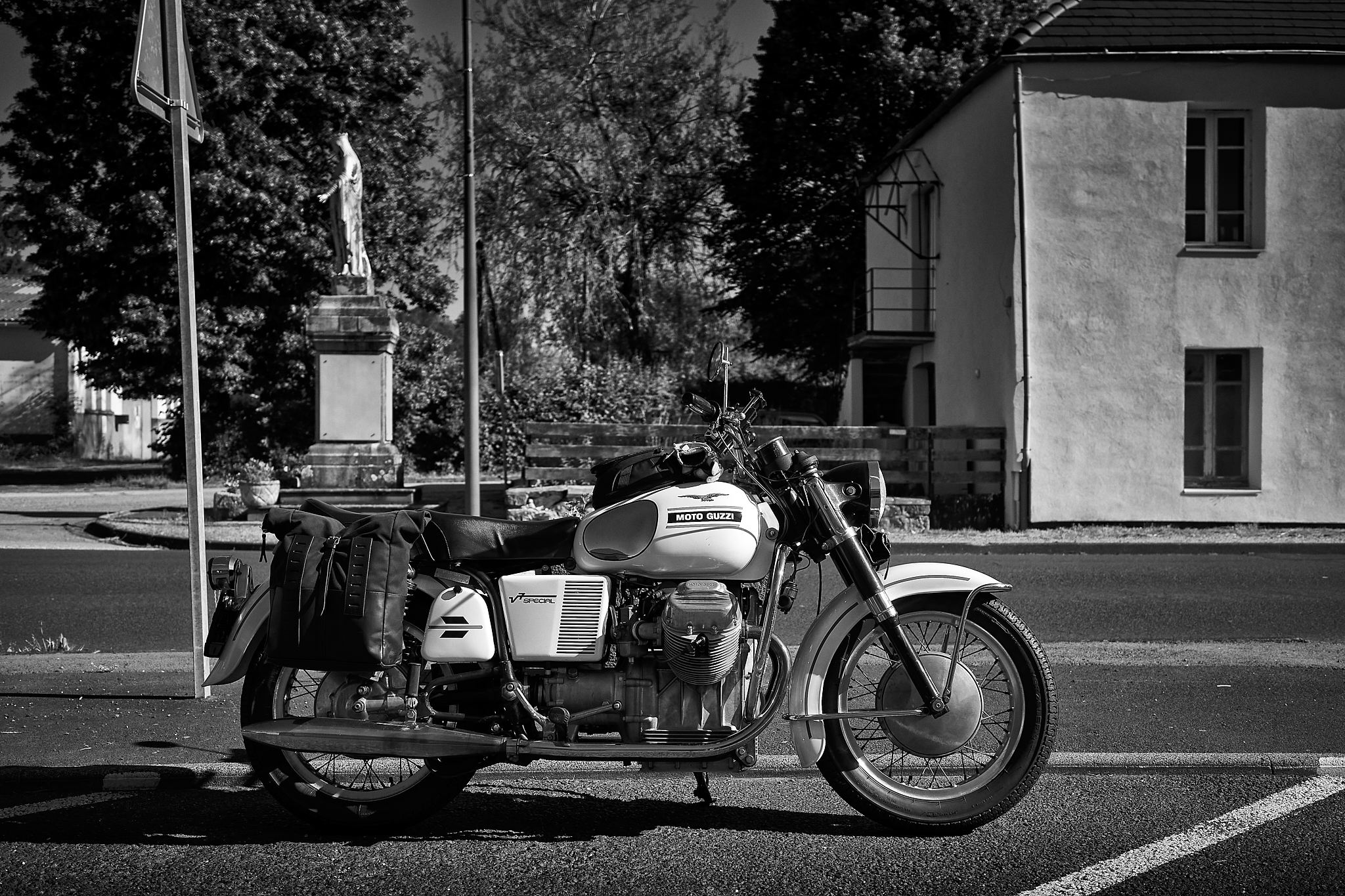It’s been some time, since I last wrote on my blog and, mostly, this is due to my new job at the Swiss Centre for Design and Health. But, sometimes, you need to take some time off for some of the essentials in your life – which is one reason why I decided to share this story. Another reason is, that independently from each other, three people got so excited about the story when I first shared it with them that I thought it might be of some value for other people, as well. The resulting text is a bit less about design, education, or other things that I’ve been discussing in my previous posts. Yet, it sets out to connect the philosophy or experience of the story to some known philosophies and recent theories in neuroscience about what happens whenever we try to predict actions and take descisions, when we learn, educate or even when we design.
Many of these things happen, when we set out on a journey to travel across countries, disciplines, worldviews, or philosophies – aiming at experiencing, learning, or even creating something new and, sometimes, unexpected. Not for nothing many of our history’s known philosophers set out to travel and reflect upon an expanding world. In the words of one of my favourite composers and musical directors these kind of journeys may even turn into a continuous one:
Luciano Berio
«(…) I don’t believe that in any form of creativity – be it science, in music, in literature, in painting – there are separate entities, objects. Certain works take shape because something else happened before. There is a continuity. It is like a journey. And these works simply are signals in the moment of this journey — but the journey continues. »
This text is about such a continous journey — a journey that did happen because a lot of things happened before. Also, because many people set out for the same or similar journeys, as well. I’m talking about a «ride» that I was wanting to do for many years. Being passionate about motorcycles — especially those from the 50ies, 60ies and early 70ies — I got attracted to the «Wheels and Waves» festival taking place in Biarritz ever since its first edition in 2012. That unique combination of the Atlantic waves rushing into the shore and a camp set up for motorcycle subculture instantly struck me and represented a sort of peaceful «low-tech» conterpart to a world dominated more and more by technology-driven constraints.
Six years ago, when I managed to buy a 1969 Moto Guzzi V7 Special, it became clear to me that one day I need to ride that bike to Biarritz to attend the festival. Unfortunately, while taking place in June, during my years as a professor, it was impossible to take off the necessary days to realise that journey — mostly, because all the exams and grad shows were taking place during the same period of the year.
This year, in 2023, it occurred to me that I wasn’t bound to academic calendars, anymore, and the weather around the festival’s time appeared to be just perfect to face a four-day ride on a bike from 1969. On a hot Friday noon, I set off with two saddlebags strapped to my Guzzi convinced to arrive the day after, in the early evening.
But riding a motorcycle that is more than 50 years old for more than 2000km during summertime, not only requires the necessary time but also good conditions of both, the bike, and the rider to reach the destination and return home safe and sound. Soon, I realised that due to the heat and the age of the bike, it was quite challenging to estimate, whether I and the bike would make it to Biarritz until Saturday night – more than 1000km ahead with the certainty that the two of us will never face motorways or any other roads that require riding faster than 90 kilometres per hour.
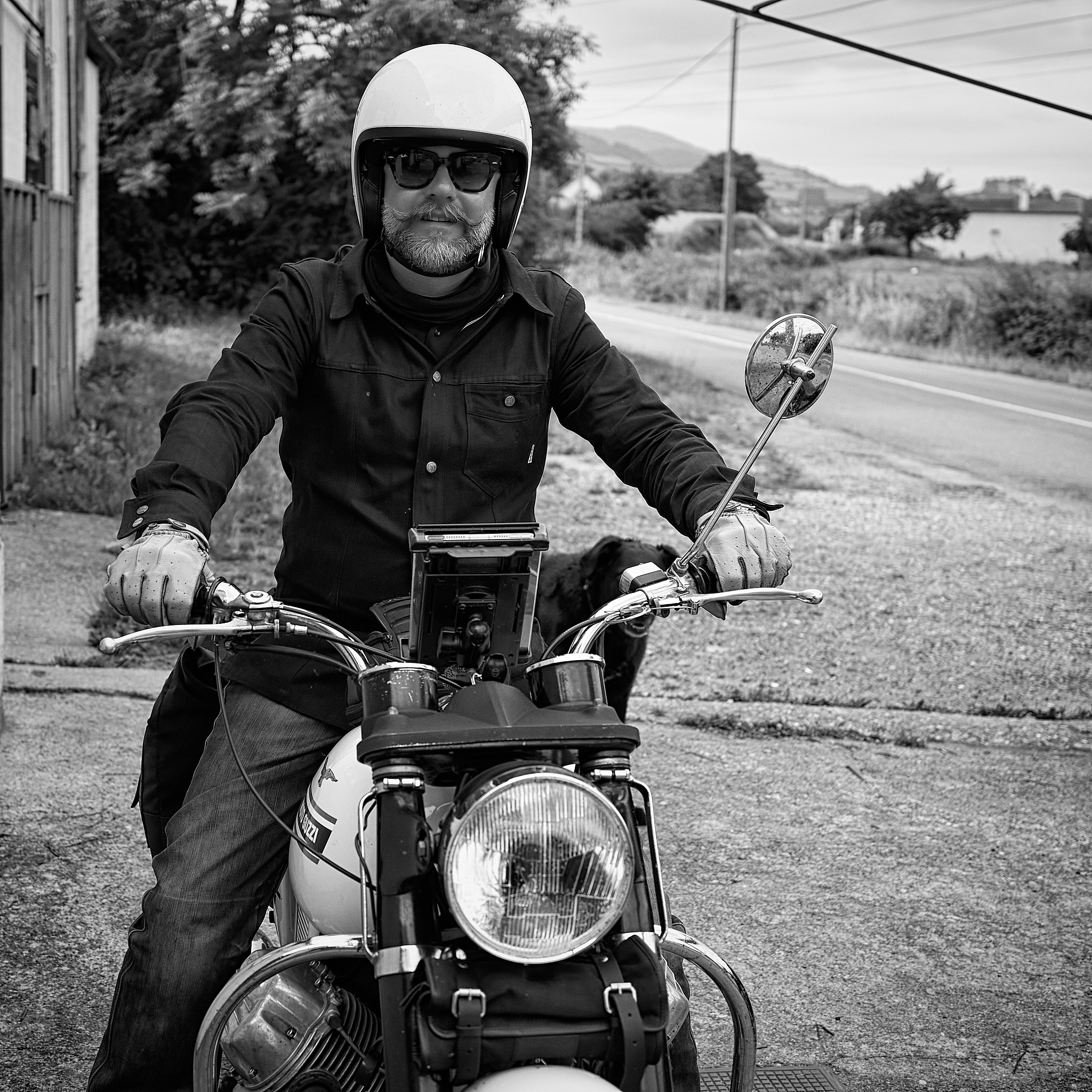
What first seemed like a handicap, slowly turned into the key mindset of the ride that I am writing about. After few hours of riding and the first cramps in my legs, the objective changed from «tomorrow night, I need to arrive» to «let’s see where the road takes the two of us». Comparing this to our daily lives, one might realise how often we turn out conditioned by the frameworks, goals, and timelines of our endeavours (academia being a particularly good example). After realising that the actual goal might be out of reach, the following hundreds of kilometres were characterised by different kind of thoughts: listening to the sound of the engine, scenting the breeze and its odours or looking out for roads to bypass busy cities and pursue a journey «off the beaten track».
Those familiar to Robert M. Pirsig’s famous book «Zen and the Art of Motorcycle Maintenance» will instantly connect to this kind of state of mind and his reflections on the quality of the moment as well as the necessary rational attention to details that may merge in an elevated state of mindfulness. Others, instead, might associate it to Mihaly Csikszentmihalyi’s state of «flow». All in all, my own experience when riding my Guzzi to Biarritz and back, might be best described by a sort of «active intuition» and gratitude whenever something went well that potentially might have gone terribly wrong.
Those things that went wrong, went the way things usually go wrong: you receive first signals such as the clutch that stops disconnecting properly before you realise that the clutch cable is nearly gone. Another time, it’s the odd feeling that the rear tyre is wobbling around in the corners before you realise that its tube got torn by the heat. Or sometimes it’s just the fact that you won’t find a room unless you don’t book it weeks in advance by using one of the dominating online-booking-platforms – and for this ride I didn’t book anything in advance.
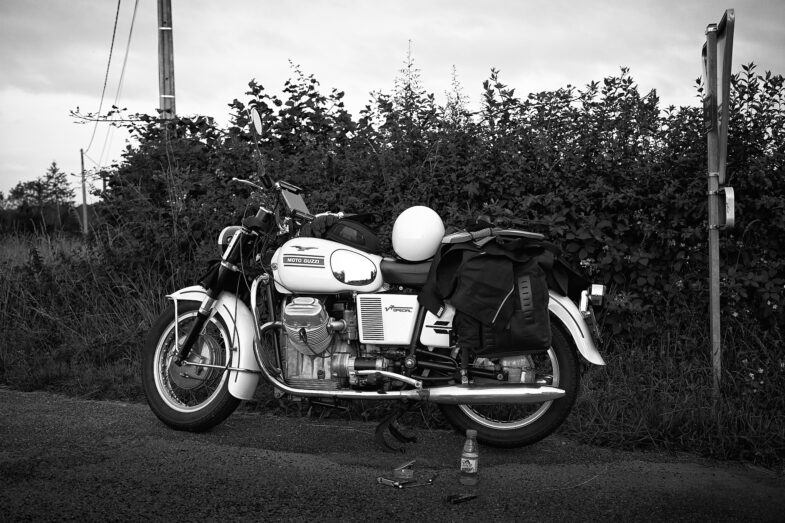

Many of these things happened during my, or «our», 2050 kilometres ride and, each time, it was people and their attention to certain circumstances that helped to solve the situation. One time, it was a small village’s mayor, who got excited about the 1969 Moto Guzzi and invited me to her dinner table in a restaurant helping with some information where to find a room for stay. Next time, it was the mechanic, who quickly helped oout with a spare clutch cable, despite his shop was closed, already. Another time it appeared to be another retired mechanic, who, despite his retirement, spent a Monday morning in the shop (most mechanics in Central Europe are closed on Mondays) and got so excited about the 1969 Moto Guzzi that he instantly gave a hand with the broken tyre and took several photographs to remember his service.
One might ask why these people felt like helping or why they got excited about someone traveling on an old motorcycle, after all. I guess it could be a mix of paying attention, empathy and «sense for the unexpected» — all qualities that we forget about when swallowed by timelines, roadmaps or objectives that tend to rule our daily lives and outrule the «unexpected». British neuroscientist and theoretician Karl John Friston examines this phenomenon amongst other ones in his «Free Energy Princile» and suggests that in order to reduce uncertainties and surprise our brain constantly tends to make predictions — another phenomenon that he describes as «Active Inference». And the more I think about it, the more I tend to agree: we try to make assumptions and predictions, all the time, in order to avoid faults and mistakes.
The ride to Biarritz and the experience of embracing the uncertainty about my arrival taught me an alternative mindset to Friston’s «Active Inference» that I would like to frame «Active Intuition». Even though in our rational western culture «intuition» sometimes might be related to something uncertain and, thus, less valuable than facts and prediction, I am convinced that a positive attitude towards intuition and its active practice can result in an attitude of reflected mindfulness that embraces uncertainty and surprise as much as the avoidance of mistakes.
Finally my V7 and I made it to Biarritz and I enjoed a nice and warm evening at the camp set up at «La Plage de la Milady» as well as a refreshing swim in the Atlantic ocean. Few hours later, I was sitting on my Guzzi again — roaring through the night to reach my hotel before leaving Biarritz and return to Switzerland.
Besides the many encounters with fabulous and genuine people, there was one piece of the journey that I particularly enjoyed: the morning after attending the festival, I left early in the morning to avoid heat and had to cross the flats between Biarritz, Bayonne, and Mont de Marsan. Most of this road is straight and crosses flat and humid pinewoods which often might carry thick fog banks blocking a rider’s view. Leaving, I instantly projected into the near future thinking «let’s hope there will be no fog» — Friston’s «Active Inference», again! — and a few kilometres later, there was fog — a lot of it! Just, that it kept hovering about three metres above the ground leaving enough space to ride underneath with my motorbike. That initial «prediction» of something potentially going wrong turned into fascination for an unexpected situation and around 80km of unforgettable ride in a real state of flow or «Active Intuition».
Thanks to those who have read so far and, first and foremost, thanks to the people that I met on my journey. Thanks also to the people that got excited about the story, Michelle V. Child, proprietor of Isaac Walton Tailors in Newcastle, and her father Kevin who sold that smart-looking «Northumbrian-Tartan-cap» which I was wearing during the festival. Thanks to my good companion in philosophical conversations, Felix Bachmann Quadros and also many thanks to Nic Palmarini, Director of the UK National Innovation Centre Ageing (NICA) who shares the same passion for motorcycles as me and his excitement about the story of this ride.
Wishing a «ride» filled with mindfulness and intuition to all of you – or in Luciano Berio’s words, again: keeping your eyes, ears and hearts open to the «signals in the moment of your own continous journey».
